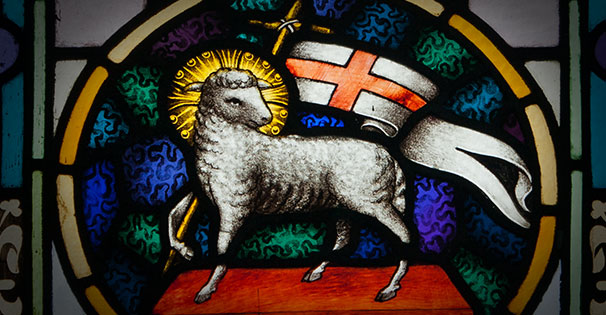Watch the Lamb
Artwork by Francisco de Zurbarán Christ crucified, 1655 Museu Nacional d'Art de Catalunya I was watching our church’s service online today, and in it we were reminded of the silence...

In part 1 of this short blog series, I introduced some aspects of the death and resurrection of Christ (the Agnus Dei–lamb of God). I believe they are worth our time and consideration, if you haven’t read it yet, click here.
This post will address the two first aspects:
1) The seriousness of sin
2) The agony of separation from God
I’ll present my thoughts on the rest in the coming days during this Easter weekend.
1)The seriousness of sin
“The soul who sins shall die.” Ezekiel 18:20
“For the wages of sin is death” Romans 6:23
Just by looking at these two verses and perhaps a few others, it’s easy to see the dire consequences of sin. When God said to Adam and Eve, “in the day that you eat of it you shall surely die”, we can understand how serious God is when discussing the matter of sin to His creatures.
Although many define sin in terms of missing the mark, falling short, transgressing the law, I tend to look at 1 John 3:4 and the modern translation which says “sin is lawlessness”. Sin is not simply an action or series of actions, but a state of being, a state of mind. Disregard for law and order, rebellion, distrust.
The unfortunate thing however is that most of Christian theology has come to interpret that when you sin, God will (is required to/is justified to) kill you. However, none of the verses above need to be interpreted in such a way. They can simply mean that sin results/causes/leads to death, as an intrinsic consequence, not an imposed penalty.
I think that the cross demonstrates this perfectly. The consequence of sin IS death. We see Christ dying and being crushed by the weight of sin (“he made him to be sin who knew no sin.” 2 Cor. 5:21), but we do not see God lashing out in anger against the Son. In fact, two verses seem to point the opposite idea:
“Yet we esteemed him stricken, smitten by God, and afflicted. But he was pierced for our transgressions;” Isaiah 53:4-5
“God was in Christ reconciling the world to Himself. Not counting their trespasses against them.” 2 Cor. 5:19
These two verses seem to be posing the idea that God was in Christ, agonizing and suffering rather than venting His wrath on the Son. The “but” on Isaiah 53 seem to point out that the words which preceded it were wrong assumptions. God wasn’t smiting His Son at the cross.
In fact, the smiting actually happened, but it wasn’t God who did it. I’ll elaborate on that point on my following post.
2) The agony of separation from God
We can see that as the cross was approaching, sin was separating Christ from the Father as He agonized enough to sweat drops of blood (Luke 22:44) as He prayed,
“Father, if you are willing, remove this cup from me.” v. 42
He even cried out another agonizing prayer on the cross,
“My God, my God, why have you forsaken me?” Matthew 27:46
It’s pretty clear from the gospel narrative, that Christ did not sense God’s presence in these most terrible moments. As He was being beaten, spit upon, scourged, it seemed that God was getting more and more distant from Him.
Perhaps sin is so offensive, repulsive to God that He can’t be around to help His Son go through it, but from that 2 Corinthians passage, it may be that God is indeed there, but sin is so dark and painful that it clouds our vision of God, and Christ may have felt the same agony that you and I feel when we’re deep in sin, fearing that God is very distant from us.
What encourages me to interpret the cross in this light are the very words of Jesus during that Maundy Thursday (the Thursday of the command, “love one another”):
“Have I been with you so long, and you still do not know me, Philip? Whoever has seen me has seen the Father. How can you say, ‘Show us the Father’?” John 14:9
The Father was not imposing on His Son an angry vengeance, neither was He distancing Himself from Christ in His worse moment. The Agnus Dei suffered at the hands of angry, self-righteous men. He was silenced by a mad mob, not by God.
If we allow the words of Christ to frame our picture of God, we must accept that God is just like Jesus, full of love, compassion, mercy, who was never angry or vengeful toward sinners, but who was crying with them, healing them and offering them a place in the kingdom next to Him and the Father.
In the following posts I’ll elaborate on what I think the narrative teaches us about the angry mob, how influenced they were by the “Prince of this world” in putting Christ on the cross. Of course I believe there’s a much greater reason as to why Christ went to the cross, and I’ll elaborate on that on my last post, “the victory of the lamb”.
“Agnus Dei” stainglass at Glenbeigh St. James’ Church Nave Triple Window. Photo by Andreas F. Borchert